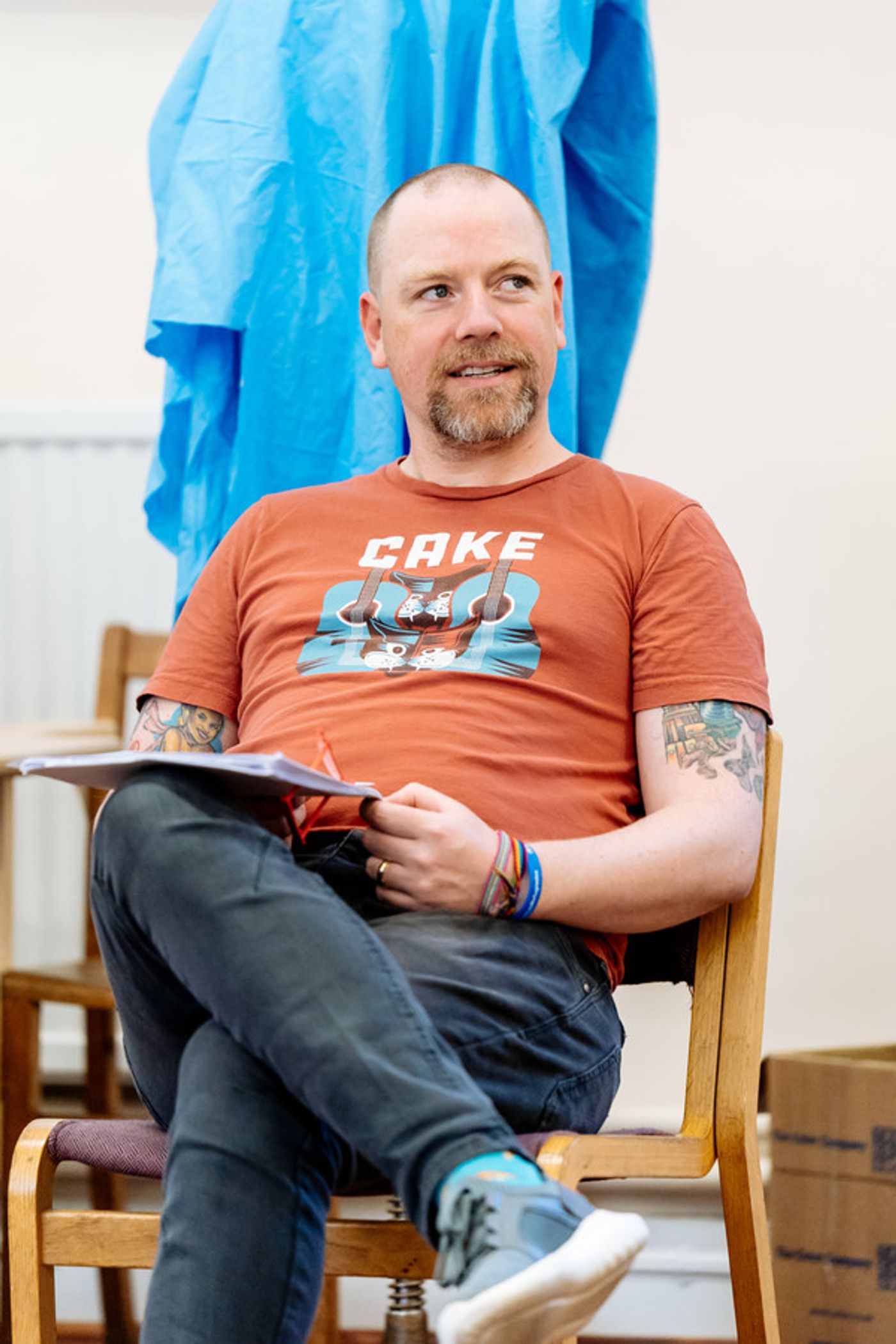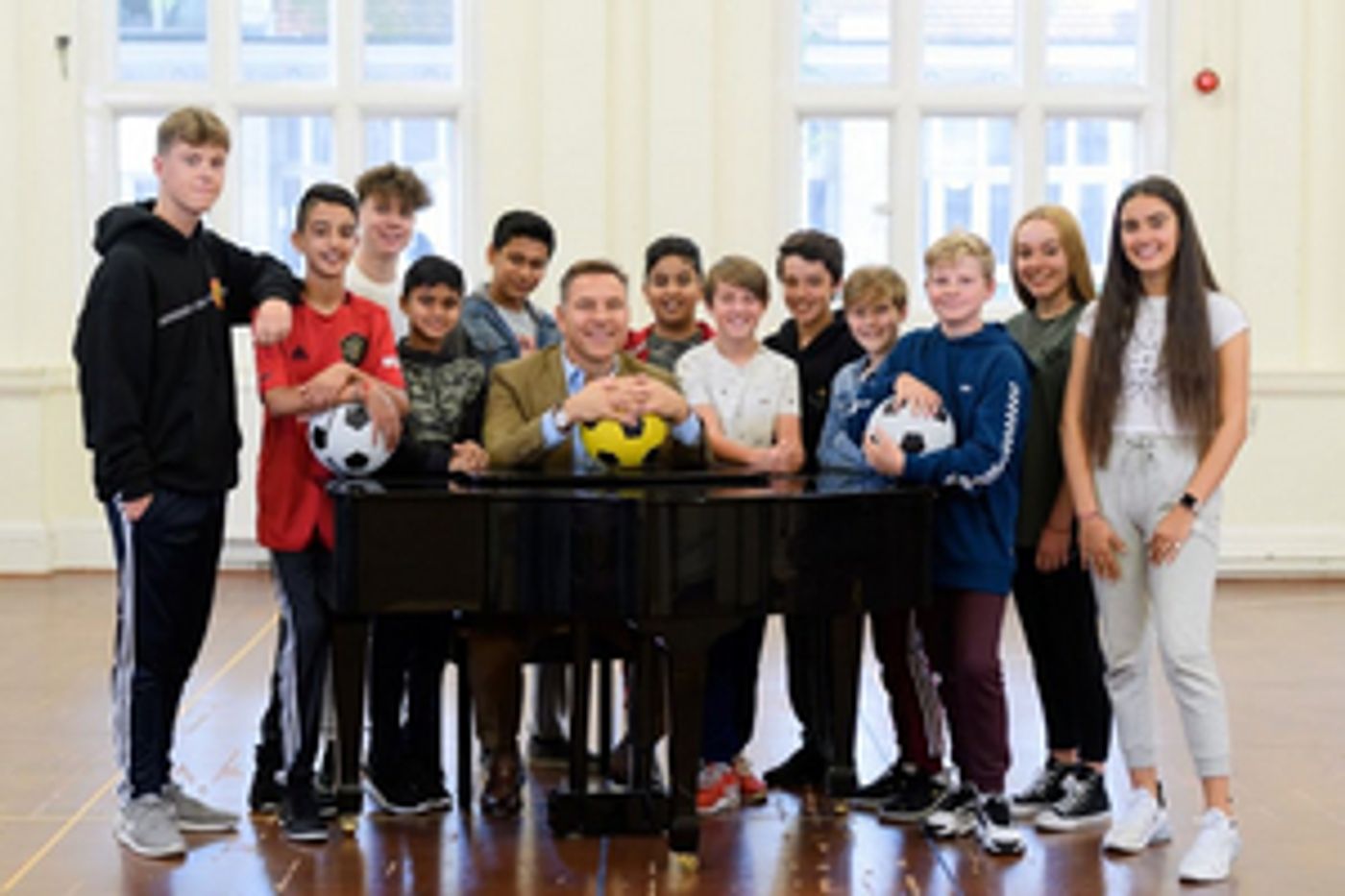Interview: Rufus Hound Talks THE BOY IN THE DRESS

The Boy in the Dress began performances this week at the Royal Shakespeare Theatre in Stratford-upon-Avon. A staging of David Walliams' best-selling novel of the same name, the production has been over two years in the making.
Catching up with actor Rufus Hound, he takes us through the development of the show: from tears early on at hearing the songs for the first time, to tech week and getting into the theatre.
What's your earliest memory of theatre?
Like most people, probably pantomime. My Mum and Dad took me to see a pantomime that Des O'Connor was in, and at one point I shouted something at him and it made everyone laugh. So that felt pretty good.
I don't think I ever went to the theatre without imagining that somebody in a moment was going to be taken ill and they'd make an announcement: "Can anybody here play this part?" And then I'd get on!
All my younger years were spent watching VHS tapes of The Muppets, so this idea of a rag-tag group of characters who could throw on a show, I've always loved it.
So you always wanted to get into theatre from a young age?
If you'd asked me anytime from when I could speak until about 18 what I was going to do, it was be a theatre actor.
At the age of 18 or 19, the government changed the grant which allowed you to be able to go to university or further training into fees. At that point, we had no money as a family. So that plan got thrown out the window.
I realised two things were true: acting was the only thing I cared enough about to commit to, and I didn't want to waste the time and money doing some broader qualification. So that was when I felt it was time to grow up and get a proper job, which I did for two and a half years, which made me realise I wasn't doing it right at all.
What was that 'proper job' then?
I started out in Public Relations as an office junior, and ended up being the Head of PR for Claire's Accessories - stuffing envelopes with handfuls of jewellery and sending them to fashion journalists all over the world.

What was your first experience at the RSC, growing up?
Obviously Les Mis started here and lots of things transferred, but I don't think I ever had seen anything here in Stratford, largely because my Dad wasn't that bothered and my Mum couldn't drive. If she could, we would've been here every other weekend.
But my pervading sense was that they were as good as it got. The National were the gold standard for contemporary theatre, and the RSC was the gold standard for classic.
They build a reputation and that reputation brings them people who are prepared to give them money to do their work. So it means when you get to them and you get to a part of the script that says [They then fight with umbrellas], under normal circumstances it's three of you holding umbrellas and trying to work it out. Here the RSC go, "Well actually we found an umbrella fighting specialist from Kyoto!"
When did you involvement in The Boy in the Dress come about?
I did the workshops two years ago and woke up every day for about 18 months singing one of about four songs from this show!
And let's be honest: there are lots of people in this world who write incredible songs, but songs that stick in your head? That's a different remit. So if you have the bloke who wrote "Millennium" and "Angels" and "She's The One", you bring him to bear and he brings it in spades.
It's quite the team you have behind the show!
We're so lucky, from music, to choreography, to design to direction to writing to the cast, just everything.
On music, I would say there are only really two pop stars in my life time that really struck me hard. And they are Robbie Williams and Beyoncé.
So in Robbie's time in Take That, I would have been 11 or 12. Then when he went solo, the wall to wall-ness of pop hits was the background of my life. And it really came to a head with "Escapology" which I played on a loop for about six months. There was something about that album that seriously connected with me.
And Guy Chambers' music is as much a part of the thing I loved as anything else. Robbie's written the lyrics and helped write the songs, but it's Guy Chambers that wrote the actual music, and so it's always also been him that I've loved.

in rehearsals
So to get the chance to sing their music is a genuinely exciting opportunity. My inner child is thrilled.
And to look at the bigger world of the show, you know I've not done a lot of movement, but Aletta Collins is one of my favourite people on earth (full stop!) But the way she goes about getting people's bodies to move to support the storytelling is second to none.
You watch it and individually you can see a simplicity, but then when you see it all added on with everything else, there's a really profound understanding of how to assist the story that I just don't really see in lots of other stuff I watch.
And obviously all of the design is completely spectacular. Rob Jones has done a beautiful job. How do you take a book that so many people are so in love with and bring that world to life? And the answer is in our production: maintain the sense that it is a book, that it is a story.

What's it been like adapting it from page to stage?
Well with Greg Doran, you know you're in good hands! He's making sure we do right by the sensibilities of the book. (So it's David Walliams' story and Mark Ravenhill who's adapted it.)
When David wrote that story 12 years ago, he was just thinking what would happen if a boy wore a dress to school. When I spoke to David about writing it, he was interested in what would happen in that story, in that world. Then when the story came out, it took on a life of its own in the hearts and minds of the readership. And these debates around identity occurred.
So ten years ago, the story felt very progressive. Now it feels quite hot. Identity and freedom and freedom to express who you are, it just couldn't feel more of the moment.
And I think what Mark has pulled out from it is not just a clarity in the story, but also the idea that many of the people who make the boy's life unpleasant have unpleasant lives themselves.
It's not just a straightforward, "Here are the goodies, here are the baddies, now let's hope the goodies can beat the baddies". There's a real depth and complexity in why all these people are behaving in these ways.
Where are you up to in rehearsals?
This is the first week in the actual space, teching it. We have an incredible company of junior actors, and when you get to tech there's only so many hours they can work for. So you stop, do it with one kid and then again with another and then again with another. It can be quite hard going.
The Boy in the Dress at the Royal Shakespeare Theatre, until 8 March 2020
Photo credit: Manuel Harlan
Videos

